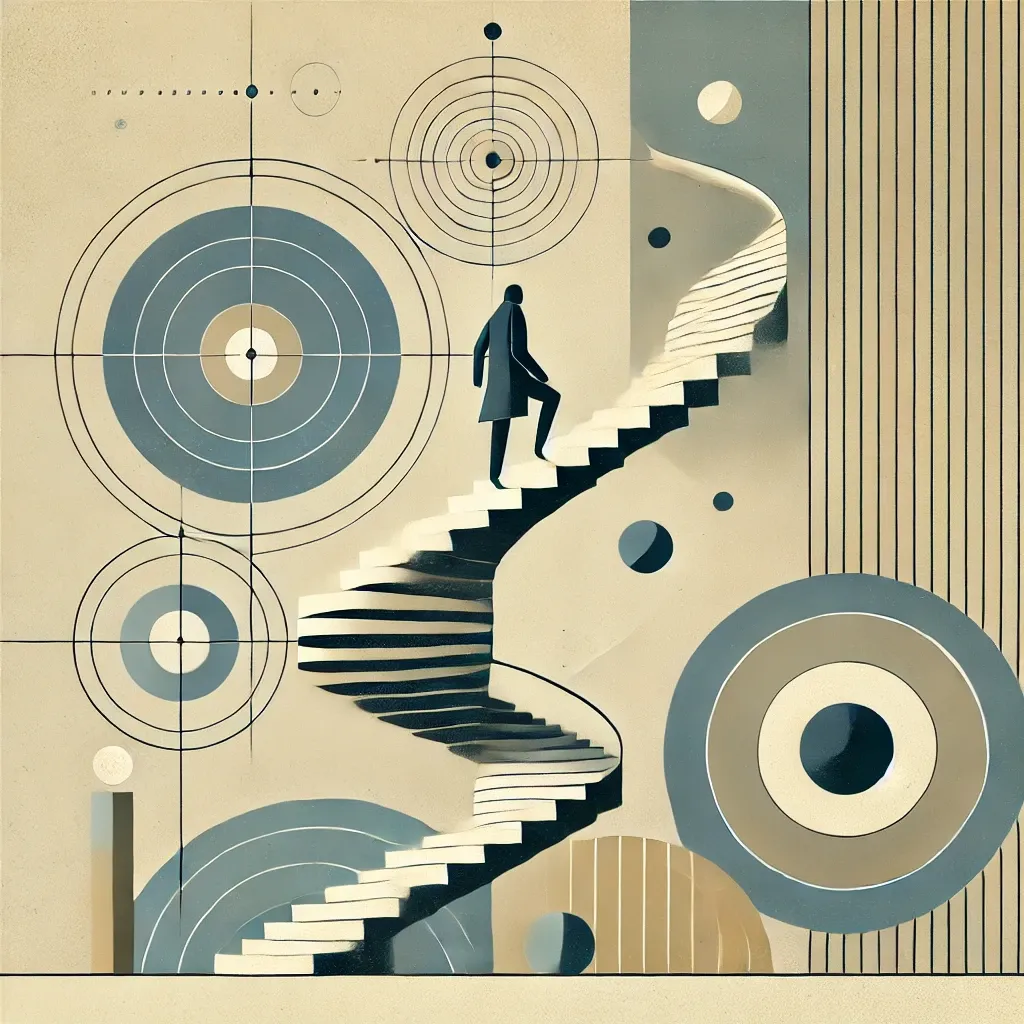There’s a thought experiment called Buridan’s ass that goes like this:
Find a donkey that’s equally hungry and thirsty. Then place it exactly in the middle of a bucket of water and hay. So the theory goes, the donkey will die, because it can’t decide between them.
Obviously, that’s silly.
(I doubt a donkey has ever died due to indecision).
But I tell you what:
For humans?
Buridan’s ass is a very real problem.
I mean, we waste time picking between two meals on a menu, never mind figuring out which career to pick or where to settle down. (Ironically, it’s Buridan who has the problem, not his donkey.)
Me?
I used to be the worst.
Overthinking everything to the nth degree, wasting days, weeks.. months, even, trying to make decisions that didn’t even matter.
But…
I say, “used to be the worst,” because I managed to beat overthinking before overthinking beat me (Well, somewhat).
And today, I wanna share a few things that helped me the most.
💪 The price of perfectionism
Why did I overthink?
Because I was a perfectionist.
If my decision-making, or what I was doing wasn’t perfect, I was doing something wrong…
.. or so I thought.
Because one day it dawned on me:
Sure, there’s benefits to being a perfectionist. But there’s a huge price to pay too.
If I spend 2 weeks deciding between A and B, when I could’ve done both in a single week, what’s the point? Likewise, overanalyzing every social interaction, and obsessing about mistakes isn’t “free.” There’s a huge time & energy cost.

Next time you catch yourself stuck in a loop, ask: Is perfection really worth the extra days/weeks I’m spending? Often, a decent-but-imperfect decision made fast beats a “perfect” one made too late.
Then..
Once I’d made that shift…
⏰ Bumbling British bureaucrats
Back in the 50s, a British naval historian called Cyril Parkinson noticed something extremely weird:
Between 1914 and 1928, the number of navy ships had gone down 67%, but the number of navy bureaucrats hadn’t dropped at all.
His theory?
(known as Parkinson’s Law)
Work expands to the time allotted to it.
If you give a bureaucrat twice as long to do a job, the job will take twice as long.

So for you and me?
🎯 Always deliver to deadlines
Master negotiator Jim Camp once said that nothing gets done without a deadline.
Use this to your advantage.
Can’t decide between staying in your current role and moving to a different department?
Endlessly tweaking your resume? (hint hint: finish it once and for all with this tool!)
Can’t decide whether to build that side project? Give yourself a week to build a prototype.
Give yourself a deadline.
If it’s 3 weeks, it’ll take 3 weeks. If it’s 3 months, it’ll take 3 months. (And the weird thing? You won’t necessarily make a better decision given more time to do so.)
🖐️ 5-5-5
This is one of my favourites.
Will your decision be important in 5 minutes, 5 months, or 5 years?
If the answer’s 5 minutes, a coin-toss might do. If the answer’s 5 years, even a week-long hike to clear your head is not a terrible idea.

Don’t spend an hour deciding what to order for lunch. Sushi or Thai? Which restaurant? Which dish? Classic 5-minute decision treated like a 5-year one.
Conversely, for decisions that'll matter in 5 years, don't rush through them in minutes. Like picking a mortgage rate - a big decision that's common for people to ignore or barely spend a few seconds over.
Next time you're stuck, write "5m, 5m, or 5y?" on a sticky note. It’ll bring perspective.
🐟 Go fishing like Gary
So the story goes, marketing legend Gary Halbert was once given $40,000 to come up with an ad campaign on a week’s notice, so he calls up his new assistant, and tells him to be at his house at 8am sharp.
Well…
8 am rolls around and instead of finding Gary working, he’s barely out of bed.
“Ahh, let’s go grab breakfast.”
But after breakfast, instead of making marketing decisions, Gary tells his assistant he wants to go fishing.
Days go by like this. Shouldn’t we at least start?! — his assistant thinks.
After days of “goofing off”, Gary declares it’s time to write. So he sits down at his desk, grabs a notepad, and bam! All these amazing marketing ideas come pouring out.
And that’s when his assistant realised:
Gary wasn’t goofing off.
By occupying his conscious mind with fishing, he allowed his (more powerful) subconscious to get to work.
Moral of the story?
If you’re overthinking a decision, ironically, the best thing to do is something completely different 🐟
(a related essay I sent a few weeks ago: why you need to embrace boredom in your career - was very well received, so save it for later! Or read it now ha)

🛣️ Decide…THEN Correct
Some folks think that once you pick an option, there’s no going back. But very few decisions are truly permanent. You can even make BIG calls — like choosing a new city or job — and still adjust or reverse them if things aren’t working out.
And here’s the thing: once you pick, you get data. You see what’s great, what’s awful, and what you never expected. That info lets you make a better follow-up decision. If you stay in indecision, you get zero data and zero progress.
The trick is to stop seeing decisions as forever-things. They're more like... experiments.


